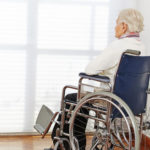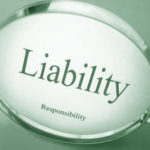Tag Archives: Clinton Personal Injury Lawyer

Is a Leaky Bathroom Faucet Always a “Dangerous Condition”?
When you are injured in a slip-and-fall accident as the result of a property owner’s failure to correct a known dangerous condition on their premises, you have the right to seek compensation for your personal injuries. It is critical to understand, however, that not all hazards are legally classified as dangerous conditions. Tennessee courts… Read More »

Is a Truck Driver Liable for Hitting a Pedestrian Lying in the Road?
Every parent has told their child, “Look both ways before you cross the street.” There’s good reason for this advice: Pedestrian accidents are among the most serious categories of motor vehicle collisions. But avoiding accidents is not just the pedestrian’s responsibility. In fact, Tennessee law expressly imposes a duty on all motorists to “exercise… Read More »

Tennessee Court of Appeals Tosses $28M Punitive Damage Award in Fatal Nursing Home Neglect Case
Nursing home abuse and neglect is a serious problem in Tennessee. Understaffed and improperly managed facilities often fail to provide the legally mandated standard of care. And when residents sustain serious injuries–or die–as a result of such mistreatment, the negligent parties need to be held accountable. Court Holds Parent Companies Not Liable for Nursing… Read More »

Missouri Court Upholds $1.5M Judgment in Amusement Ride Accident Lawsuit
Many amusement park and amusement ride accidents are the result of improperly trained staff. Patrons trust the people operating rides to know what they are doing, especially when it comes to safety. But in too many cases, amusement operators fail to provide proper training–or even adequate staff–and the results may be catastrophic for a… Read More »

Is a Store Liable if I Sit on a Broken Chair?
When you enter a store or other public business, the owner has a legal responsibility to ensure the premises are in a reasonably safe condition. But this does not mean a business owner is an absolute insurer of your safety. To the contrary, Tennessee law generally holds an owner liable when it has “superior”… Read More »

Can a Judge Force Me to Undergo a Medical Exam as Part of My Personal Injury Case
In just about every personal injury lawsuit arising from a car accident, the plaintiff has suffered some kind of physical or mental injury as a result of the defendant’s negligence. But such injuries must be proven to the judge and the jury. And under Tennessee court rules, the defendant has the right to seek… Read More »

How Do You Prove the “Proximate Cause” of an Accident?
In any Tennessee personal injury case, it is critical for the victim to establish the “proximate cause” of an accident. Note that the proximate cause may not be the same thing as the immediate cause (or the “cause-in-fact”). For example, if a one driver runs a red light, a second driver suddenly stops to… Read More »

FDA Puts a Stop to Sale of Unapproved “Skin Whitening” Products
Many Tennessee consumers are misled into purchasing dangerous drugs and defective medical devices by false labeling. Unscrupulous manufacturers and sellers may claim a drug has been scientifically tested–or even have the endorsement of the U.S. Food and Drug Administration (FDA)–when that is not the case at all. When such medically unsound products are allowed… Read More »

Tennessee Court: Alleged Rape Is Not “Medical Malpractice”
The medical industry has done a good job convincing the public that it needs special protections from the legal system. In Tennessee, medical malpractice claims are treated differently than other kinds of personal injury cases. Among other things, malpractice victims must give special “pre-suit” notice to a negligent physician and submit an affidavit from… Read More »

How Does a “Household Exclusion” in My Car Insurance Policy Work?
Many Tennessee auto insurance policies contain language known as a “household exclusion” or “family exclusion.” The purpose of such language is to prevent a person from seeking insurance benefits following a car accident caused by another household or family member. In theory, this prevents “collusion” among family members who might seek double-recovery under two… Read More »











